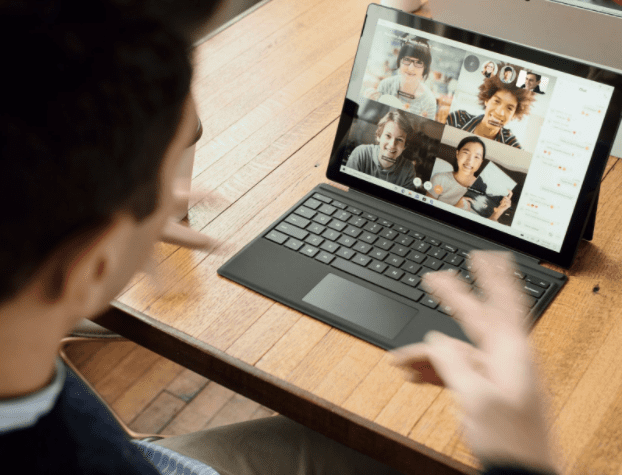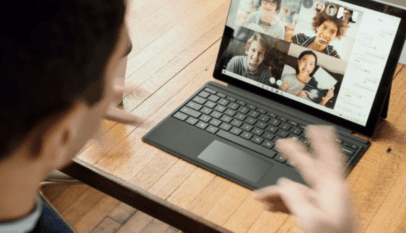
Remote hiring is an incredible opportunity for companies to hire talent anywhere around the world. Shifting to a remote workforce has many advantages like increased productivity and lower traditional operation costs. Teams also prefer working in a remote setup because it offers flexibility and better work-life balance.
As more and more businesses shift to hiring remote employees, some employers seem to overlook one important aspect of remote work and internet safety: data privacy. With everything now performed and stored online, from employee data to company deliverables, employers need to seriously consider protecting their employees’ private data.
Governments have already established laws to help ensure companies protect their employees. And while plenty of American state policies like the California Consumer Privacy Act, and international laws like the European Union’s GDPR, require companies to take the matter of their employees’ and the general public’s data privacy seriously, it still has its limitations, especially when it comes to the novel concept of remote hiring that has only seen a surge over the pandemic.
Why is Data Privacy Important?
Anyone who uses the internet has had their data collected on the internet. That fact seems so invasive to one’s privacy and yet it is such a common condition deemed necessary to navigate modern life that in some instances, it is often brushed off. Data could be anything from the ads you click, the photos you post, and the more personal, private information like your full name, contact details, and home address.
In the World Wide Web, personal data is a precious commodity and it is often compared to oil. Data security statistics show that people generate a collective of 2.5 quintillion bytes of data every day. All of the data gathered becomes a gold mine of information that can be studied, interpreted, and used by researchers, the government, law enforcement, and businesses. Companies use the data to gauge market sentiments, train software to be smarter, determine the next big trend, and anything else that can help propel their business.
While a lot of this information can be mundane and regular folks don’t feel like their privacy has been violated, other data can be very private and when it falls into the wrong hands, can have very devastating real-world effects. In the hands of hackers, phone numbers, home addresses, bank and credit card information, and a whole other slew of personal information can become ammo for devastating attacks on individuals and entire corporations.
Taking Data Privacy and Security Seriously
The rules of data privacy have thankfully evolved to better protect people after years of mistrust, government action, and fear. Companies are now pressured to change the way they handle personal data they have acquired.
Employers have the responsibility to keep their employees safe. In the traditional office setting, this would mean employing measures like hiring a security guard at the entrance of the building so strangers don’t get to just waltz in or making sure coworkers follow the code of conduct so everyone feels like they can trust one another. In this new day and age where the workspace has shifted online, that responsibility now includes making sure employees’ data don’t get leaked on the internet.
Employers’ Responsibility for Employee Data Privacy
Some larger firms can hire data engineers for data security to make sure no unauthorized parties have access to their data and any malicious threats are dealt with. While not all companies can hire a team to specialize in data security, companies can still employ other ways to ensure their employees’ data are private and secure.
Cyber Security Awareness Training
Companies should take it upon themselves to train their new hires about basic security practices like keeping critical software updated and making sure computers and other devices have the latest security updates installed to prevent cyber attacks. With all communication done online, employees should be wary of any suspicious links or emails, avoiding and reporting them to reduce the risk of an employee’s vulnerability to any malware attacks.
Utilize Data Privacy and Security Tools
Having remote employees install a good firewall is imperative as it is the first line of defense in cyber security to prevent any unauthorized access to the computer and the data in it. Online accounts should have multi-factor authentication log-ins and the use of other tools like VPNs, encryption storage solutions, and password managers can help establish and maintain a company’s air-tight security system.
Reliable File Sharing Platforms
With company operations all online, remote workers need to utilize a file-sharing service to do their job. Companies should do their research and decide on the best file sharing platform for their business given their price, accessibility, and security. Popular choices include Google Drive, Dropbox, OneDrive, and iCloud.
Keeping Remote Employees Safe
Encouraging the culture of data privacy and security would not only keep employees at ease that their information is secure, but it also helps companies avoid the consequences of mismanaged employee data. Data privacy may not always seem like an urgent matter to attend to, but when left unmanaged, it can become a threat to the company.
By taking data privacy seriously, companies can uphold integrity and keep their employees’ trust. In the end, setting up strategies for data privacy and security for remote employees is another way to keep them happy and safe. And keeping them happy and safe always reaps benefits for companies.
INNOVATION AND DATA PRIVACY ARE NOT NATURAL ENEMIES: INSIGHTS FROM KOREA’S EXPERIENCE
The following is a guest post to the FPF blog authored by Dr. Haksoo Ko, Professor at Seou…













